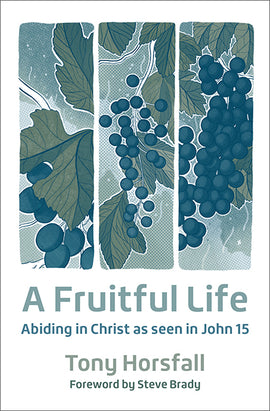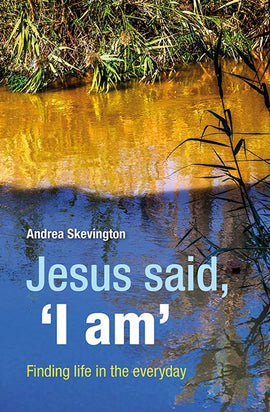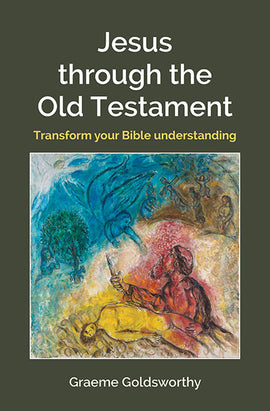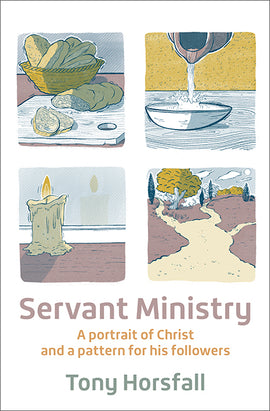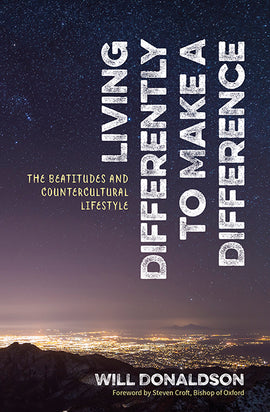What Would Jesus Post?: A Biblical approach to online interaction
Locating our online activity in Christian discipleship
If Jesus had access to the internet, what would he post? And, as importantly, what wouldn't he post? This book asks the intriguing questions of those who engage with the internet, which biblical principles inform its use, and how might Christians steward their online presence?
Digital Product - This title is now out of print but is still available digitally. Please click the button below to buy on Kindle or click below to visit our eBooks collection to buy this product for your smartphone and/or tablet. - Go to eBooks
| Title | What Would Jesus Post?: A Biblical approach to online interaction |
| Author | David Robertson |
| ISBN | |
| Description | If Jesus had access to the internet, what would he post? And, as importantly, what wouldn't he post? This book asks the intriguing questions of those who engage with the internet, which biblical principles inform its use, and how might Christians steward their online presence? |
| Details |
|
If Jesus had access to the internet, what would he post? And, as importantly, what wouldn't he post? This book asks the intriguing questions of those who engage with the internet, which biblical principles inform its use, and how might Christians steward their online presence?
David Robertson is vicar of South Ossett, West Yorkshire. He has ministered in rural, suburban and urban deprived parishes and, as a graduate in Biblical Studies, he is primarily a Bible teacher. He has written several books, as well as daily Bible readings for BRF.
Anvil vol 36 issue 1. April 2020. Review by Mary Kells
This short and accessible book applies biblical principles to online life, reminding the reader that being online is not ‘downtime’ from faith, but an arena, rather, in which faith can be enacted, and in which it can also be tested. It is only towards the end that we discover that the book was written as a result of a damaging online experience. The book is designed for individuals, parents, youth and church leaders and could be used in a group or by individuals. It identifies three generations of online users: the tech-immigrants, pre-dating the advent of the World Wide Web in 1990, and more comfortable offline; tech-assimilators, who have learned to make use of online resources; and the tech-indigenous, who have never known anything else. The book is intended for all
three groups, spelling out basic concepts to facilitate the tech-immigrants, but challenging the tech-indigenous to re-think their online behaviour. A key question is: are we being conformed to online culture, or prepared to be a transformative presence, reflecting counter-cultural Christian values?
The individual chapters spell out the nature of the online environment and its temptations and consequences, including such perils as trolls and digital porn, and offer helpful tools and biblical resources. Each chapter follows the same simple structure, combining reflection and action. The chapters begin by outlining a particular issue or challenge, then suggest specific Bible passages which address it, and finish with a set of questions, for discussion, reflection or to prompt action.
This is a book one would wish were not necessary, as its premises at one level seem so obvious, and yet, it clearly is. It encourages everyone to recognise online life as a powerful reality, but one that must be integrated into the greater reality of a life lived in God.
Reviewed by Rev Dr Mary Kells, St Faith’s, Lee-on-the-Solent
Church Times. 31 August 2018. Review by Bryony Taylor
This book is a simple guide to thinking biblically about one's online interactions. I imagine that it would be helpful for church leaders who are realising that they need to engage with the internet and all the attendant issues that might affect people's discipleship, but who might not know where to start. If you already use social media and the internet a great deal, you may find it a little simplistic.
The book covers a wide range of themes, such as prayer, taking a sabbath, gossip, pornography and bullying, and then looks at what they might mean online. The aim is to help the reader think 'What would Jesus post?', updating the '90s slogan for the next generation.
Robertson makes an interesting point about hypocrisy that, as online lives blend with offline lives, it is becoming harder to live a double life -- and that is a good thing.
More could have been said about the benefits of the internet and social media for pastoral care and discipleship: for example, the way in which the housebound and those with mental health problems and disabilities have access to church communities online; or the way in which apps, such as the YouVersion Bible app or PrayerMate, can support spiritual development. Neither of these apps is mentioned in the chapter on prayer.
Robertson helpfully explains what the book is and is not. Unfortunately, he does this in the afterword rather than the introduction; so it is a good idea to read the afterword first. The book is structured in such a way that the reader can dip in and out of it easily.
A few relevant chapters could be used as material fo ra small group Bible study, or even a short course. I would recommend it to a congregation who, perhaps, are feeling a generational divide around the use of technology and would like a way of approachig discipleship in this area together.
The Reverend Bryony Taylor is the author of 'Sharing Faith Using Social Media' (Grove, 2016) and a priest in the diocese of Derby.
Blog review by The Revd Kate Wharton 01.09.18
This was a really interesting book to read and review. There are so many conflicting thoughts and opinions around about social media and the whole online world. Some people think it's the best thing since sliced bread, a fabulous gospel opportunity, a way to reach out and spread the good news and connect with people you wouldn't otherwise meet. Some people think it's the work of the devil, all about spreading lies and hate and evil, bringing out the worst in people and distracting us from the real work of the kingdom. The truth, inevitably, probably lies somewhere in between those two extremes. Like many things, social media and the internet can be used for good or for evil, and there are plenty of people and organisations doing both of those things.
It would be easy to assume that the Bible has nothing to say about the online world - after all computers and electricity couldn't even have been dreamed of during the time the Bible was written, let alone the internet. But it's vital as Christians that we consider what God thinks about all aspects of life, and that we weigh up what we do and say and think in the light of what we know to be true. This is what theology does - it enables us to look at an aspect of life in our world and to consider it within the gaze of God, asking ourselves what he wishes to say to us about it.
This is what David Robertson has sought to do in this new book: What Would Jesus Post? - A Biblical Approach to Online Interaction. Personally, I'm a big fan of social media, as you'll know if you follow me, and have been assailed by multiple posts on anything from chocolate to church to squirrels to fencing to gin to Jesus... and much more! So, I was fascinated to read what David Robertson had to say, and to see what he thought Jesus would have made of the world of social media.
My own view is that Jesus would have been all over social media - he was never one to shy away from a chance to interact with people, after all. He was always where the people were - even when that meant being in a place that the 'good', righteous, religious people felt that he shouldn't have been. Of course, Jesus would have used his social media accounts without sinning, as he did everything - unfortunately that's something I can't claim to have always managed, and I doubt whether any of us have. But in 2018 I simply don't think that we can declare the whole online world to be morally bankrupt and declare that we want nothing to do with it. The internet isn't going anywhere, and I believe that we need to understand it and engage with it - in a way that's shaped around and formed by what we know to be true of God's kingdom rule. So, what might that look like?
I really liked how practical the book was, and that it's structured in such a clear and readable way. It constantly refers back to the truths and wisdom of the Bible, and it is also totally up to date and relevant to 21st century life and culture. There are helpful tips about how we can all make better use of social media in our kingdom ministry, and there are also important challenges as to just how we come across, how we engage, how we interact. We're reminded to 'pray before posting' and to think about the responsibilities as well as the opportunities that come with having a 'personal digital pulpit.'
The overall advice from this book is that it's important for Christians as individuals, and for churches as organisations, to engage on social media, and to make the most of all that is offered by it. But crucially we're also encouraged to be wise, discerning, humble, hospitable and generous as we do so. There's also a really important and interesting challenge about our overuse of/reliance on all things online, and an encouragement to consider an occasional 'digital sabbath.' Ultimately, we're reminded that we are 'stewards of a digital footprint.'
Overall I think this is an important and timely book for Christians. I haven't come across anything quite like it before and it definitely gave me a lot of food for thought. I'm very much pro all things internet (well, most things...!) but this has given me some important new ideas, and questions to ask, for which I'm grateful.
Kate Wharton is Vicar of St. Bartholomew's Church in Roby, Liverpool, and Assistant National Leader of New Wine England



